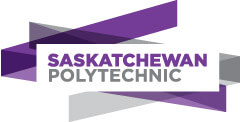About Telecommunications Networking Technician Certificate in Saskatchewan Polytechnic
Program Overview
The Telecommunications Networking Technician program is an intensive 45-week certificate program offered full-time at Saskatchewan Polytechnic Regina Campus. It provides practical and analytical training in electronic and IP-based communications, basic computer networking, and Internet of Things solutions. The program emphasizes practical, hands-on training with the same equipment you are likely to use in your career.
Over three semesters, you will learn how to safely install, maintain, troubleshoot and repair a wide range of communications equipment and computer-network cabling. You will learn about various types of transport mediums and protocols that are relevant to current state-of-the-art technologies such as fibre optics, wireless communications and Internet of Things devices. You will design an Internet of Things solution to a real-world problem.
Career and Salary Information
Your Career
As the telecommunications industry continues to grow and evolve, the demand for technicians remains strong. Graduates of the program may find employment in:
- telecommunications systems design, construction and installation;
- computer networking systems installation;
- satellite communications equipment installation and repair; and
- fibre optics splicing and installation and more.
Academic qualification equivalents:
- Secondary School Diploma or equivalent, include one English, Grade 12 (ENG4C or ENG4U), minimum 60%
English language requirements (one of the below):
- IELTS : Overall minimum score of Band 6.5 with a minimum score of 5.0 in each component.
- TOEFL : An overall minimum score of 81 on the Internet-based Test of English
- PTE : A minimum score of 63 with minimum component scores of 50.
Saskatchewan Polytechnic Highlights
| Type |
Public |
| Campus Setting |
Urban |
| Application mode |
Online and Paper mode available |
| Graduation rate |
62% |
| Acceptance rate |
96% |
| Number of Students |
16,008 |
| Overall cost of living |
14,762 CAD |
| Academic calendar |
Semester based |
| % of International students |
6% |
| Number of campuses |
4 |
| Medium of instructions |
English |
| Undergraduate Tuition fee |
14,044 CAD |
| Postgraduate Tuition fee |
16,426 CAD |
| Cost of living |
694 -1147 CAD per month |
Saskatchewan Polytechnic First-Year Tuition Fees And Living Expenses For International Students
Over the course of one academic year, the following graph displays tuition and living expense estimates in Canadian currency for one full-time international undergraduate student. Please bear in mind that these are only estimates; actual pricing will vary depending on your needs and preferences. Other factors to consider include currency changes, visa and study authorization fees, and vacations back home.
- For international students, the overall fees will range from:-
| Particulars |
Amount |
| Administrative fees |
50.00 to 150.00 CAD |
| Application fees |
150 CAD |
| Student association fee |
95.00 to 445.00 CAD |
| Non-refundable fee at the start) |
1,000 CAD |
| Tuition fee range |
6,195 to 18,089 CAD |
| Laboratory fee |
100.00 to 409.00 CAD with no fees for
some courses which do not have a lab service. |
| Books and Supplies |
200 to 3,725 CAD |
| Technology fee |
50 to 146 CAD |
- For a student of Saskatchewan Polytechnic the required financials (Cost of Attendance) can be:-
| Description of Financials |
Amount in CAD |
| Average cost of tuition |
11245.77 CAD |
| Cost of living |
10799.39 CAD |
| Application fee |
150 CAD |
| Estimated total (per year) |
22,195.16 CAD |
